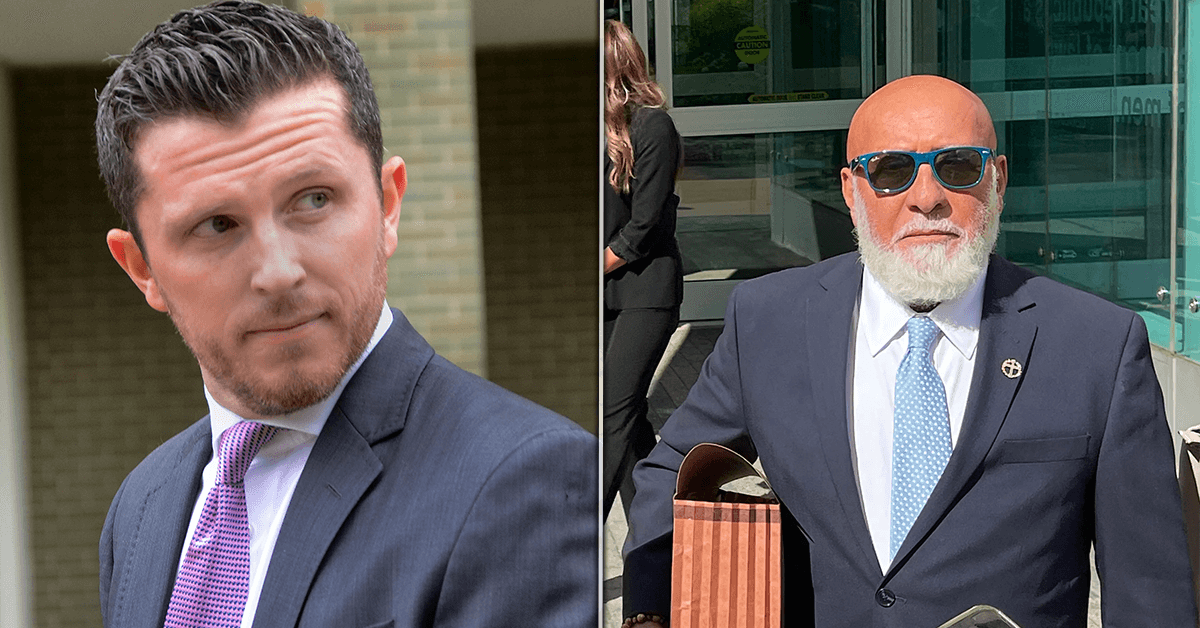Early Releases in Michigan Bribery Scandal Spark Debate Over Justice

Two key figures in Michigan's largest public corruption scandal in three decades, involving the bribery of former Michigan House Speaker Rick Johnson, have been released from federal prison after serving less than half of their sentences. The controversy surrounding their early release has sparked debate over whether justice has truly been served, as Johnson himself may soon be released.
Early Releases of Key Figures
Vince Brown, a lobbyist for the cannabis industry, was released on August 6 from a low-security prison in Pennsylvania after serving less than nine months of his 20-month sentence for conspiring to bribe Johnson. Three weeks prior, Oakland County businessman John Dawood Dalaly was granted compassionate release from a minimum-security prison in West Virginia, also after serving less than nine months of his 28-month sentence for bribing Johnson.
The lenient sentences for these high-profile individuals, both of whom played significant roles in a scandal that rocked Michigan's capital, have raised concerns about the integrity of the justice system. "This does seem like it's not justice," commented Matthew Abel, a Detroit-based criminal defense attorney specializing in cannabis-related cases. Abel emphasized that the legacy of these actions continues to affect Michigan's cannabis industry.
The Federal Bureau of Prisons has not provided an explanation for Brown's release, which continues a pattern of early releases for Metro Detroit businessmen, labor leaders, and politicians convicted of public corruption. The trend highlights ongoing concerns about accountability in high-profile cases.
Rick Johnson's Bid for Compassionate Release
Rick Johnson, a 71-year-old former Republican lawmaker from LeRoy, has also petitioned for compassionate release, citing various health issues. Johnson was sentenced last year to 55 months in federal prison for accepting $110,200 in bribes while serving as chairman of the Michigan Medical Marijuana Licensing Board. His actions, described by U.S. District Judge Jane Beckering as an "unfettered abuse of power," included accepting bribes ranging from $1,000 to $20,000 and engaging in illicit activities.
Johnson is seeking early release from a minimum-security federal prison camp in Minnesota, where he has served less than nine months of his sentence. The judge had previously rejected his request, noting that Johnson had served only 4% of his sentence and that his medical condition was neither terminal nor severely debilitating.
Judicial Trends in Compassionate Release
Johnson's chances of early release appear slim, given that federal judges in Michigan's Western District, where his case was prosecuted, have only granted compassionate release to 3% of the 410 inmates who applied since the COVID-19 pandemic began. This rejection rate is one of the highest in the country, trailing only behind districts in Arkansas, Georgia, Oklahoma, and Texas.
Defense attorney Wade Fink acknowledged the importance of compassionate release as a safety valve for courts, allowing them to consider extraordinary and compelling circumstances. However, he cautioned against interpreting early releases as leniency, noting that underlying factors, such as terminal health conditions or family responsibilities, often play a role.
The Broader Impact of the Scandal
The bribery scandal resulted in the convictions of four individuals last year, including Brian Pierce, a 46-year-old lobbyist from Lansing who is serving a two-year sentence in a medium-security prison in Pennsylvania. Brown and Dalaly, despite their early release, are required to remain under court supervision for two years.
Brown attributed his early release to credits earned for good behavior under the First Step Act, a federal law that allows inmates to reduce their sentences based on various factors such as age, health, and lack of a prior criminal record. He emphasized that the bribery case represented a small part of his career, which he described as overshadowed by youthful mistakes and poor partnerships.
The scandal continues to reverberate in Michigan's cannabis industry, with some still questioning the extent of favoritism granted to certain businesses during the industry's formative years. As Abel pointed out, "Johnson's never come clean and told what actually happened here. He really single-handedly perverted the industry."
Ongoing Debate Over Compassionate Release
The release of Dalaly, a 72-year-old businessman who bribed Johnson with at least $68,200, has further fueled the debate. Despite objections from federal prosecutors who argued that Dalaly should serve his full sentence, Judge Beckering granted his release, citing Dalaly's worsening health and the need for medical care outside of prison.
Dalaly's release is the first compassionate release granted by a federal judge in Michigan's Western District in two years. Johnson, citing his own deteriorating health, hopes to follow suit. His request includes support from his daughter and the Osceola County Sheriff, who argue that Johnson has shown remorse and taken steps toward rehabilitation.
However, Johnson's previous attempts to shorten his sentence have been unsuccessful, with Judge Beckering rejecting a request in April under federal sentencing guideline changes. The judge emphasized that Johnson had already benefited from shorter guidelines during his sentencing, underscoring the seriousness of his crimes.
As the legal battles continue, questions remain about the true extent of justice served in this high-profile corruption case and the ongoing impact on Michigan's cannabis industry.
Share this article:
Spotted a typo, grammatical error, or a factual inaccuracy? Let us know - we're committed to correcting errors swiftly and accurately!








 Helpful Links
Helpful Links